Will Walmart Ever Get Rid of Single-Use Bags Completely? Here’s What We Know
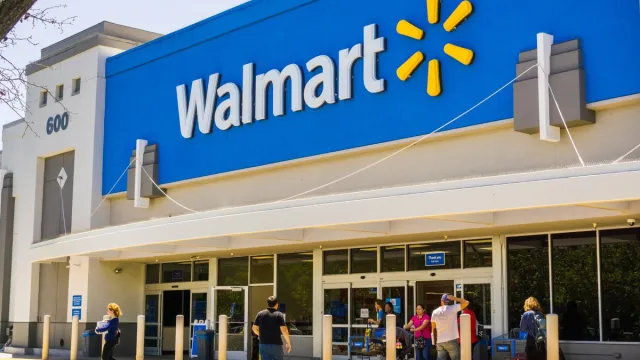
In recent months, Walmart has made headlines for doing away with single-use bags in certain states. In some cases, the company axed plastic and paper options in places where it wasn’t required by law, leaving many shoppers wondering whether their home state would be next to bid adieu to bags. Now that Walmart has announced it’s going bagless at over 100 more stores in April, it’s only natural to wonder whether the company intends to do away with single-use bags completely. Read on to find out what we know about Walmart’s bag plans, and what’s still up in the air.
READ THIS NEXT: Walmart’s New Bag Policy Does More Harm Than Good, Outraged Shoppers Say.
Walmart has nixed single-use bags in several states.
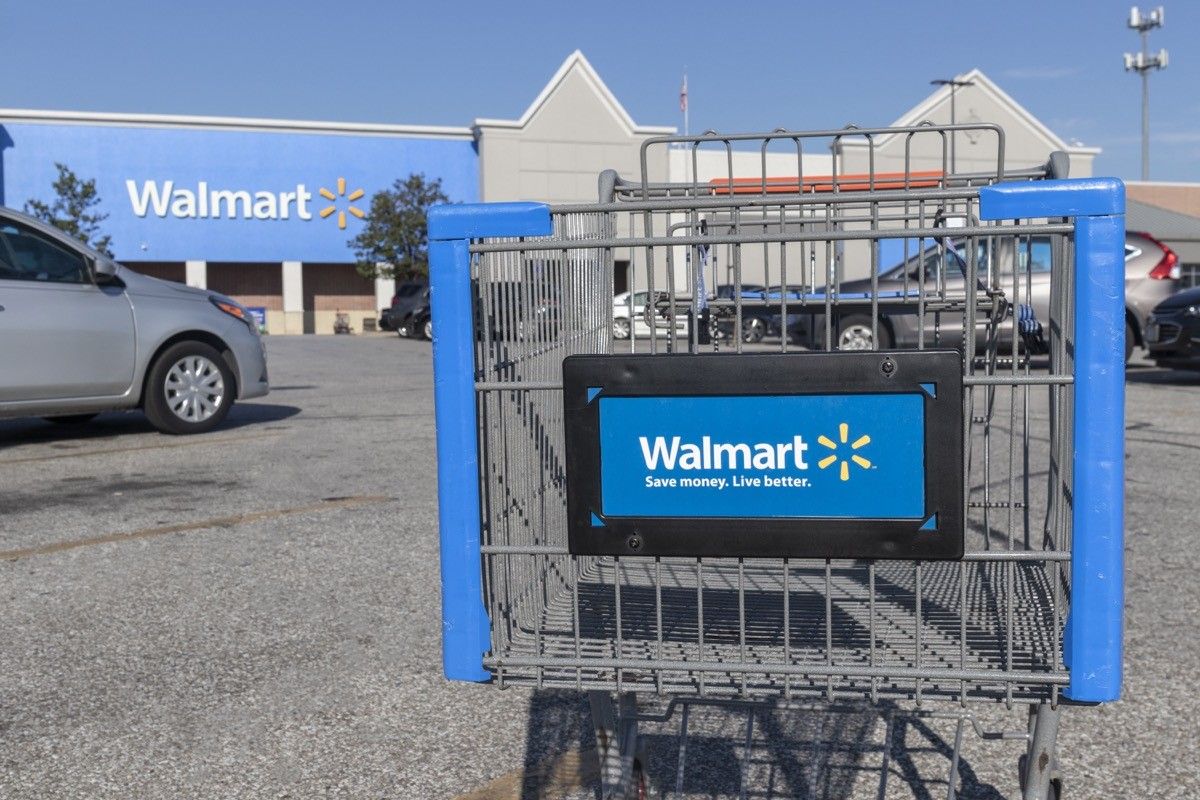
Walmart lays out its single-use bag policy on its website. Currently shoppers in six states are affected: New Jersey, Maine, Vermont, New York, Colorado, and Connecticut.
In New Jersey specifically, no single-use bags are available at all—neither in stores nor at pickup—which is in line with new state laws that went into effect in May 2022. For delivery in Jersey, Walmart provides free reusable bags while customers are adjusting to the new policy, the website states. Residents can opt out of getting more reusable bags during delivery—in order to avoid stockpiling the totes—but Walmart then asks that reusable bags be left out on the doorstep.
In the five other states, single-use bags aren’t available either, but deliveries are still carried out in paper bags and reusable bags, the latter of which Walmart will charge you for.
At Walmart stores nationwide, single-use bags are still available for produce, raw meats, and chemicals “to ensure food safety and prevent cross contamination,” per the retailer’s website.
Walmart stores in Oregon and Washington are next to give bags the boot.
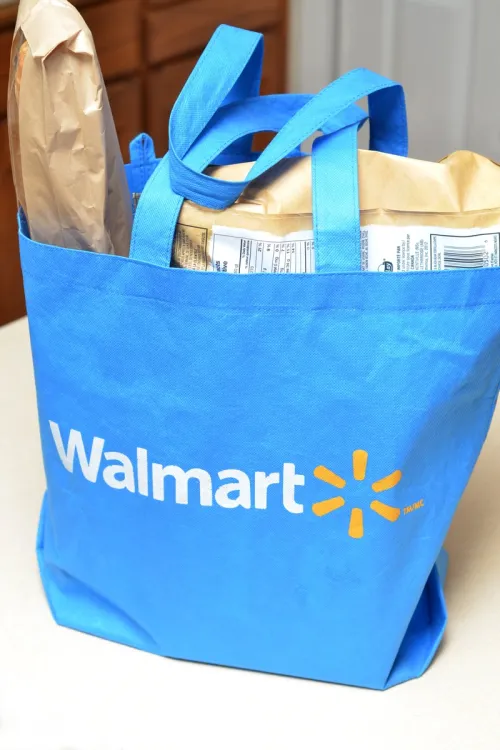
Next month, Walmart is also doing away with plastic and paper bags at stores in Oregon and Washington state—only offering its branded, reusable options as of April 18.
Shoppers in both states will no longer have access to reusable plastic bags at checkout or pickup, per a press release provided to Best Life. Paper bags will be removed from checkout, but they’ll still be used for deliveries.
However, it’s worth noting that certain plastic and paper bags are still permitted under Washington and Oregon law. While they’ve done away with single-use plastic bags, stores are allowed to sell thicker, reusable plastic bags and large paper carryout bags.
In the press release for the Washington bag initiative, Jane Ewing, senior vice president of Walmart Sustainability, said “going bagless” is in line with Walmart’s “effort to reduce waste at our stores” and keep ecosystems clean.
RELATED: For more up-to-date information, sign up for our daily newsletter.
So, what’s next for single-use bags?
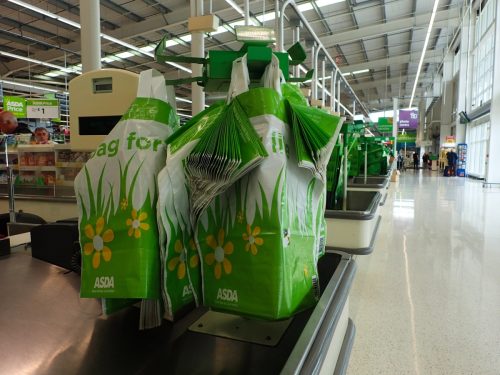
Walmart is being proactive when it comes to single-use bag policies, but it’s not yet clear whether this policy will eventually apply to all stores.
Last month, Aman Singh, director of global communications on sustainability for Walmart, spoke with Verify about the company’s plans for single-use plastic bags, specifically. Singh told the outlet that Walmart does not have plans to get rid of single-use plastic.
It’s worth noting that Walmart continues to make eco-conscious efforts: The big-box retailer helped fund a substantial portion of the Beyond the Bag initiative, which aims to find solutions to plastic bag waste, CNN reported. The company also introduced its plans to “reinvent the plastic bag” in 2020, moving closer to its zero-waste goal.
Best Life reached out to Walmart for more information on its bag policy, but has not yet heard back.
There’s speculation that Walmart is getting ahead of legislation.
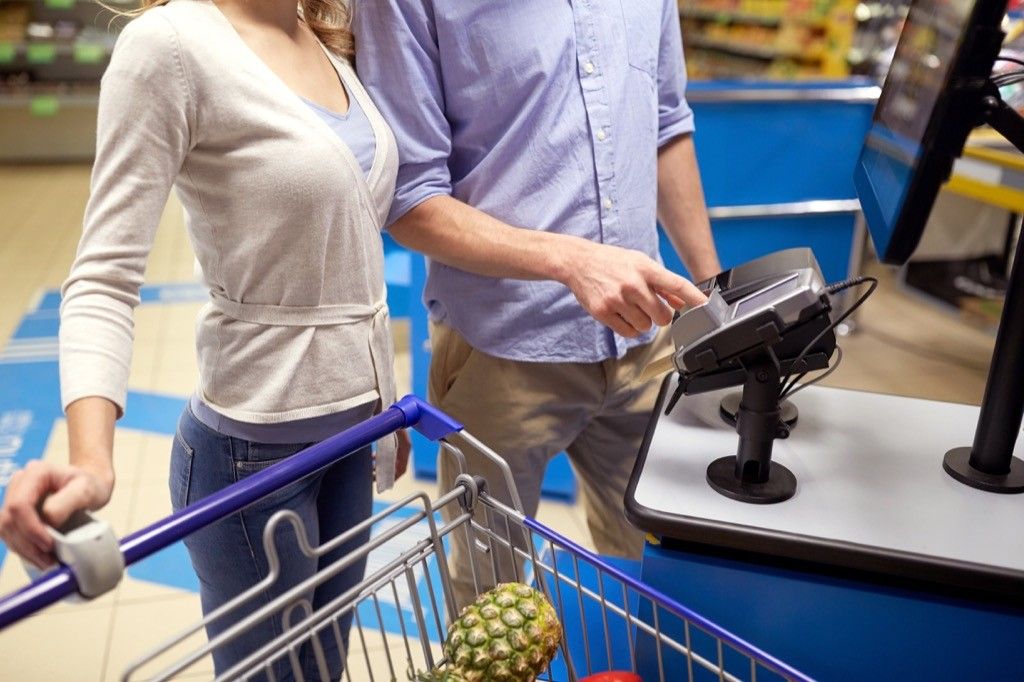
Certain states already have laws in place to ban single-use plastic. California, for example, has laws prohibiting single-use plastic bags, requiring stores to charge a 10-cent fee for each recycled paper bag or reusable bag. However, Walmart hasn’t yet changed its policy in California.
In January, CNN reported that Walmart is actively “trying to get ahead of legislation in some states that are cracking down on plastics,” while also responding to customers calling for waste reduction.